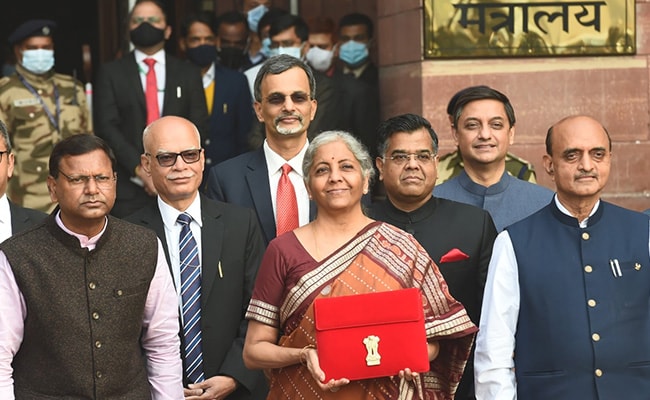
People should avoid putting their money into highly volatile illegal cryptocurrencies and instead wait for the central bank to issue "digital rupee", Union Minister Rajeev Chandrasekhar told NDTV today.
Finance Minister Nirmala Sitharaman yesterday in her Budget speech recognised crypto as an asset that will be taxed at 30 per cent. The Reserve Bank of India, or RBI, will launch a "digital rupee", a move that aligns with the future of digital payments in India, where transactions are higher than the US and China.
"If you are very keen on crypto and you want to make payments and transactions with crypto, please wait for RBI's digital currency or digital rupee. It will be legal and hi-tech," Mr Chandrasekhar, Minister of State for Electronics and Technology, told NDTV.
He cautioned people against investing in cryptocurrency not recognised by the authorities. Only the RBI can issue currency, and anything outside of this, whatever their name, is not currency but could be asset.
On whether the Finance Minister's announcement was the first step in regulation of crypto, Mr Chandrasekhar said, "This is not about regulation of crypto. This has removed ambiguity, cleared doubts in people's mind whether crypto would be regulated, whether it would be banned. Yesterday's Budget has given a direct answer - crypto won't be banned. The RBI will issue digital currency."
"Young people who are dealing in crypto thinking it is speculative asset should avoid doing it. People should think carefully before investing in illegal, unauthorised cryptocurrency as volatility is very high. There is of course a chance to earn, but you can also lose a lot," the Union Minister said.

Union Budget 2022: Finance Minister Nirmala Sitharaman announced 30% tax on profits made from digital assets transactions
He said it has been Prime Minister Narendra Modi's vision for the last few years to see a massive growth in digital payments in the country.
"Digital payments are faster, leakproof and responsive. India is one of the top nations that is using digital payments in a big way. India has the biggest number of digital transactions, higher than the US or China. If we see where our innovation is heading, there comes digital cryptocurrency or digital currency. Keeping this in mind, the Finance Minister yesterday indicated that India will be the first country whose central bank will issue digital currency. This is a very good thing, good for innovation, for payments ecosystem, for start-ups," Mr Chandrasekhar said.
Cryptocurrencies have been under scrutiny by the country's regulators since first entering the local market nearly a decade ago, with a surge in fraudulent transactions leading to a central bank ban in 2018.
The Supreme Court lifted the ban two years later and the market has surged since, growing by nearly 650 per cent in the year to June 2021 - second only to Vietnam, according to research by blockchain data platform Chainalysis.
PM Modi last year warned that Bitcoin presented a risk to younger generations and could "spoil our youth" if it ended up "in the wrong hands".
Track Latest News Live on NDTV.com and get news updates from India and around the world

